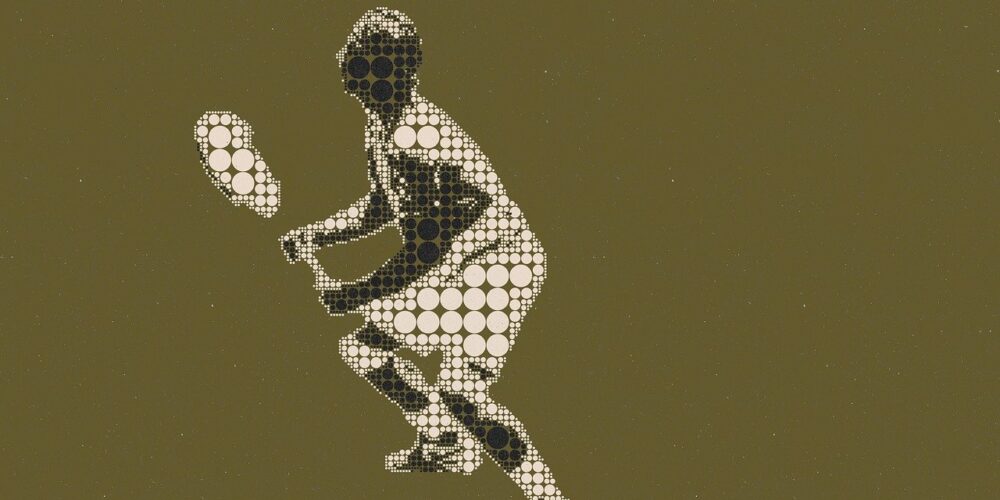Waiting for a better time? Don’t.

Arthur Ashe was a true trailblazer. He was the first black player to win tennis’s grand slam tournaments. He won Wimbledon in 1975, and became the world’s number-one ranked player in that year.
Ashe’s life reflected some very famous words:
“Start where you are. Use what you have. Do what you can.”
So much said, with not a single extra word. This quotation is often attributed to Arthur Ashe, but it probably came from Theodore Roosevelt—and it likely predates the US president too. What is beyond question is that Ashe’s life reflected those words in full.
Ashe was born into an era of rampant racism against African Americans. He was born in 1943—long before civil rights were properly established in the country. Tennis was the preserve of rich white people. Had Ashe waited for change to come, he would have lost his peak years. So he started where he was.
Ashe did not have access to elite schools and coaches and facilities. He became a self-taught player, with a unique style of play. He worked with what he had—talent and gumption and access to basic public courts—and finally won a scholarship to UCLA.
He did what he could—he played and played and played, getting better and better. His first claim to fame came in the early 1960s, when he began winning regional tournaments. He didn’t wait for doors to be opened—he opened whichever ones he could by himself.
This philosophy took him to unprecedented heights. Even today, he remains the only black male to have won Wimbledon, the US Open, and the Australian Open.
Those words should inspire us all. Too many of us wait for conditions to change in our lives. We pray for opportunities. We wait for favours. We wish for more resources. We bide our time until more favourable circumstances prevail.
That seems logical—but it’s really not. This world does not come to any of us—except perhaps the most privileged. Most of us have to go to the world and take our place, using whatever we have. There is too much uncertainty governing human life, for any of us to wait for better situations. For all we know, things may be worse, much worse, tomorrow.
There are no perfect starts—and there are also no perfect endings. At no stage in our lives will we feel “Ah, all is just right. We’ve done it.” Life is in constant flux. Wins and losses come, often randomly, often in equal measure over time. There is no state of bliss. There are only temporary destinations, where we rest and then resume the journey.
That odyssey, as so many have pointed out, is the destination. Ashe himself said: “Success is a journey, not a destination. The doing is often more important than the outcome.” We do not become better by waiting for better times; we get better by getting going. From where we are. With what we have. Doing what we can.
I offer this advice freely and often: just put one foot after the other, and get going. To leaders: don’t nit-pick perfecting your strategy—start executing it the minute it’s good enough! To young adults: don’t sit on your hands waiting for the world to be a better place—get cracking and see what happens. Human success is not the consequence of perfect conditions—and nor might it even feel like success once achieved. So don’t wait—get moving, even if your start-point is disadvantaged; even if your toolkit is light; even if the path ahead is daunting.
Oprah Winfrey was born into poverty—and sexual abuse. Look where she is now. JK Rowling was a single mother living on welfare, but she doggedly wrote the first Harry Potter book, which was to become the first in the best-selling series of novels of all time. Stephen Hawking was diagnosed with an awful neurodegenerative disease at 21—but went on to become perhaps the most renowned physicist of our time.
There is no guarantee that this approach leads to success, mind. No one can predict that. But whatever happens next, the only way to begin is from where we are situated; with whatever we possess; and starting modestly and building from there. Whether or not you hit the heights of Ashe or Winfrey, Rowling or Hawking, you will have journeyed well.
Picture yourself in the predicament of Nelson Mandela in 1962, when he was imprisoned by the South African government. Where was he? A high-security island. What did he have? Just his spirit and inner strength, and a few fellow prisoners. What could he do? Keep educating himself; form deep bonds with his inmates; write his autobiography and many letters and articles; refuse to compromise. He was there for 27 years, and I guess we know what happened next.
To follow the start-somewhere-do-something philosophy is to be relieved; relieved of the need to wait for better times; relieved of the need to achieve only the best. That’s the wind in your sails right there. Get going.

Buy Sunny Bindra's new book
The X in CX
here »
Popular Posts
- You are who you hang out withSeptember 28, 2025
- Why your mother was right about your anxietyOctober 12, 2025
- The balance sheet that mattersOctober 5, 2025
- Use AI, but don’t lose youOctober 19, 2025
- Born knowing the waySeptember 21, 2025















